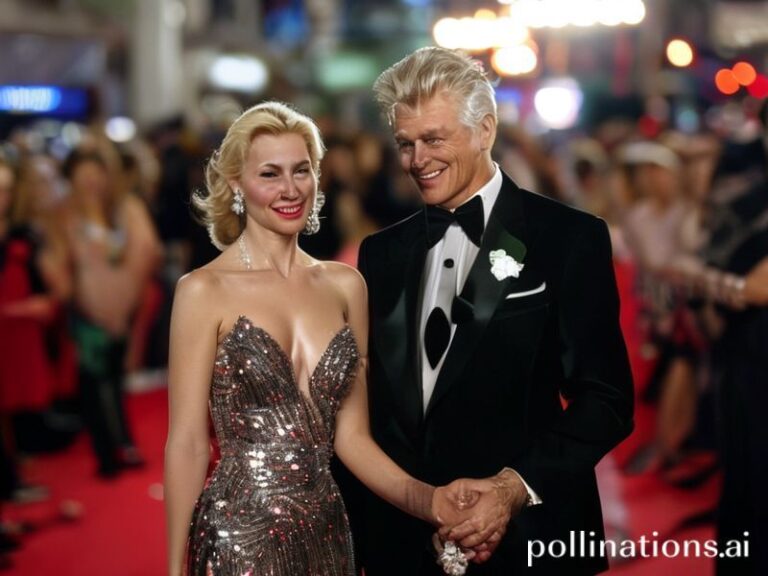Global Meltdown: How Ben & Jerry’s Became the Ice-Cream Front of Geopolitics
The Ice-Cream Empire That Melted Geopolitics: A Global Postcard from Ben & Jerry
There are few things more reliably universal than the human desire for cold, sweet fat—second only, perhaps, to the human desire to argue about it. And so Ben Cohen and Jerry Greenfield, two underachieving gym-class refugees from Merrick, Long Island, accidentally built a transnational soft-power weapon disguised as dessert. Today, from the kibbutzim of Israel to the karaoke bars of Seoul, their pints sit in freezers like pastel Trojan horses, ready to detonate culture-war shrapnel at the twist of a spoon.
Let us begin in the Levant, where “Ben & Jerry’s” is Hebrew slang for “existential crisis.” When the brand tried to pull its franchise out of Israeli settlements in 2021, Israeli supermarket magnates staged freezer-clearance orgies, vowing to replace every pint with a locally churned concoction called “Ariel’s Revenge.” Meanwhile, in Ramallah, activists toasted the move with scoops of “Chocolate Fudge Brownie” repurposed as celebratory canapés. The United Nations, never one to miss a free buffet, issued a 47-page report on dairy-based sanctions, proving once again that nothing accelerates multilateral paperwork like a scoop of ethical posturing.
B&J’s genius—equal parts sugar and sanctimony—has turned the humble ice-cream carton into the moral bumper sticker of the 21st century. In Manila, commuters queue at 7-Eleven for “Empower-mint,” a flavor allegedly funding grassroots feminism. In Berlin, vegan squatters hawk bootleg “Pecan Resist” on Telegram, claiming the proceeds will smash the patriarchy and the lactose-industrial complex in one sticky blow. The joke, of course, is that Unilever—Ben & Jerry’s corporate overlord since 2000—also owns Axe body spray, a product whose advertising philosophy sits somewhere between locker-room lechery and chemical warfare. Somewhere in London, a brand manager is updating the PowerPoint deck titled “Synergy: Aerosol Misogyny Meets Woke Gelato.”
Emerging markets have proven especially fertile. In Lagos, the black-market exchange rate now tracks the price of “Chunky Monkey” alongside the naira; customs officials have been caught smuggling pints in diplomatic luggage, labeling them “essential vaccines against sadness.” Brazilians, ever the innovators, have begun using empty B&J tubs as flotation devices in flood-prone favelas—an unintended but perfectly on-brand metaphor for late-stage capitalism.
Meanwhile, the Chinese consumer—ever pragmatic—has reverse-engineered the entire catalogue. Häagen-Dazs knockoffs like “Ben & Jierry” now outsell the original in tier-two cities, prompting a Shanghai think tank to publish a white paper titled “Soft Power and Hard Churn: Dairy Disinformation in the Pacific Century.” The report concludes, with admirable vagueness, that “frozen desserts may influence regional stability if improperly melted.” One can almost hear the Pentagon updating contingency plans: Operation Rocky Road.
Back in Vermont, the original factory has become a stop on the Beltway donor safari. Senators who once filibustered climate bills now pose for selfies beneath a solar-powered slushie machine, their smiles as forced as the carbon offsets printed on every lid. Cohen and Greenfield themselves drift through like aging rock stars, dispensing free scoops and unsolicited opinions on defense spending. Watching them, you realize the real flavor is nostalgia: a bittersweet swirl of ’60s idealism and IPO regret.
So what does the planetary odyssey of two Jewish hippies and their cow juice tell us? Simply this: in an age when traditional diplomacy resembles a kindergarten food fight, dessert has become the last neutral zone—until, that is, someone reads the ingredients. Every spoonful is a referendum on trade policy, climate justice, and whether your host believes in borders. The next time you crack open a pint, remember you’re not just feeding your late-night ennui; you’re participating in the grand, ridiculous pageant of globalization, one ethically sourced calorie at a time. And if the caramel ribbon tastes faintly of hypocrisy, well, that’s the secret ingredient that keeps the world licking its wounds.







